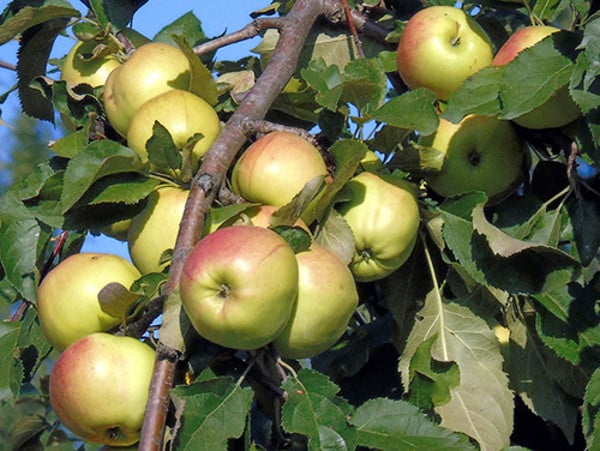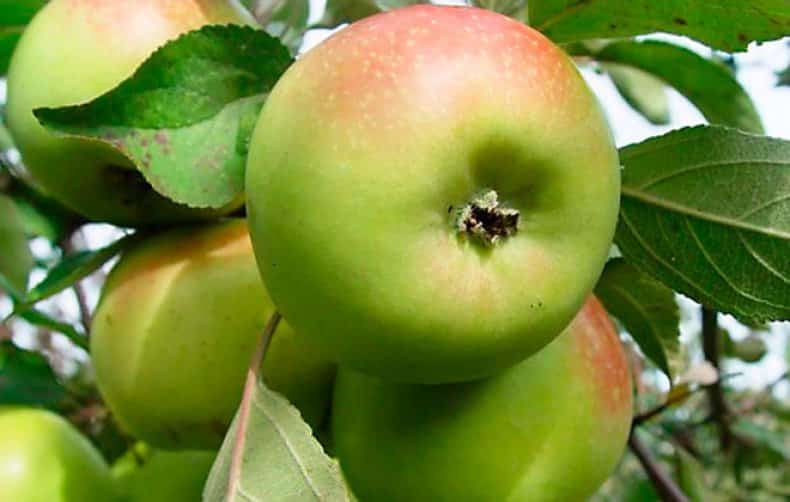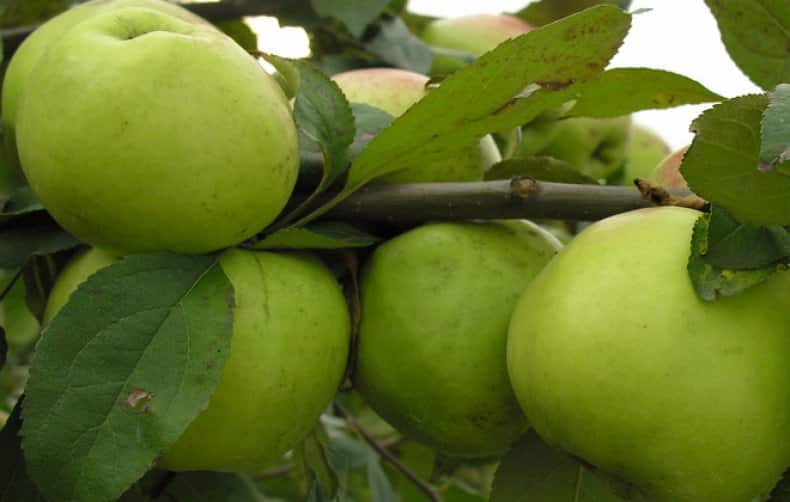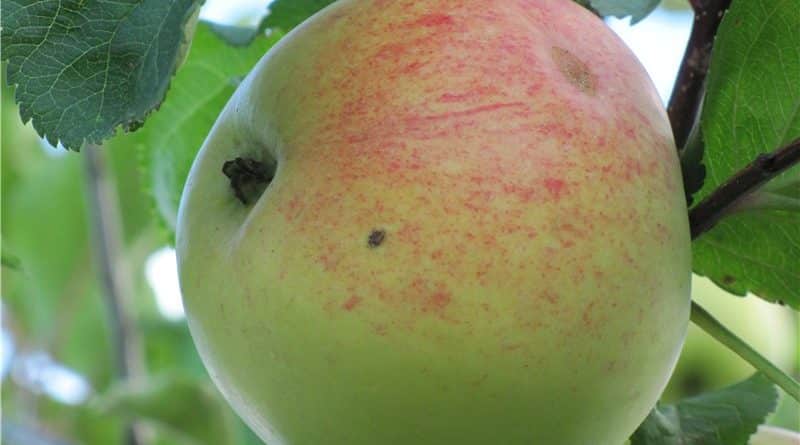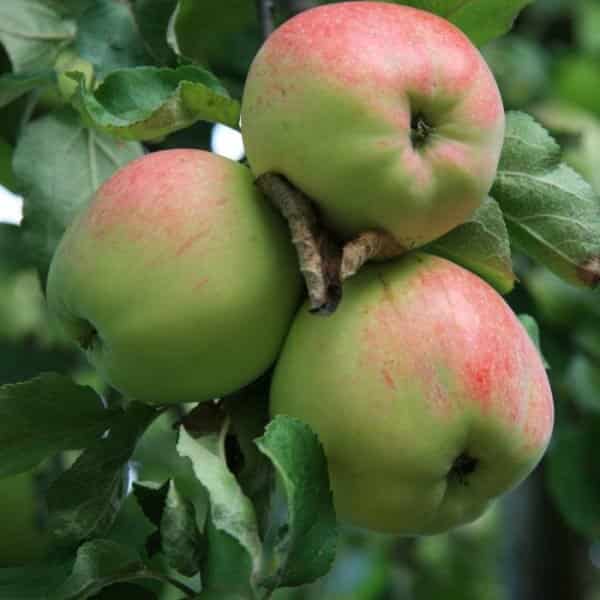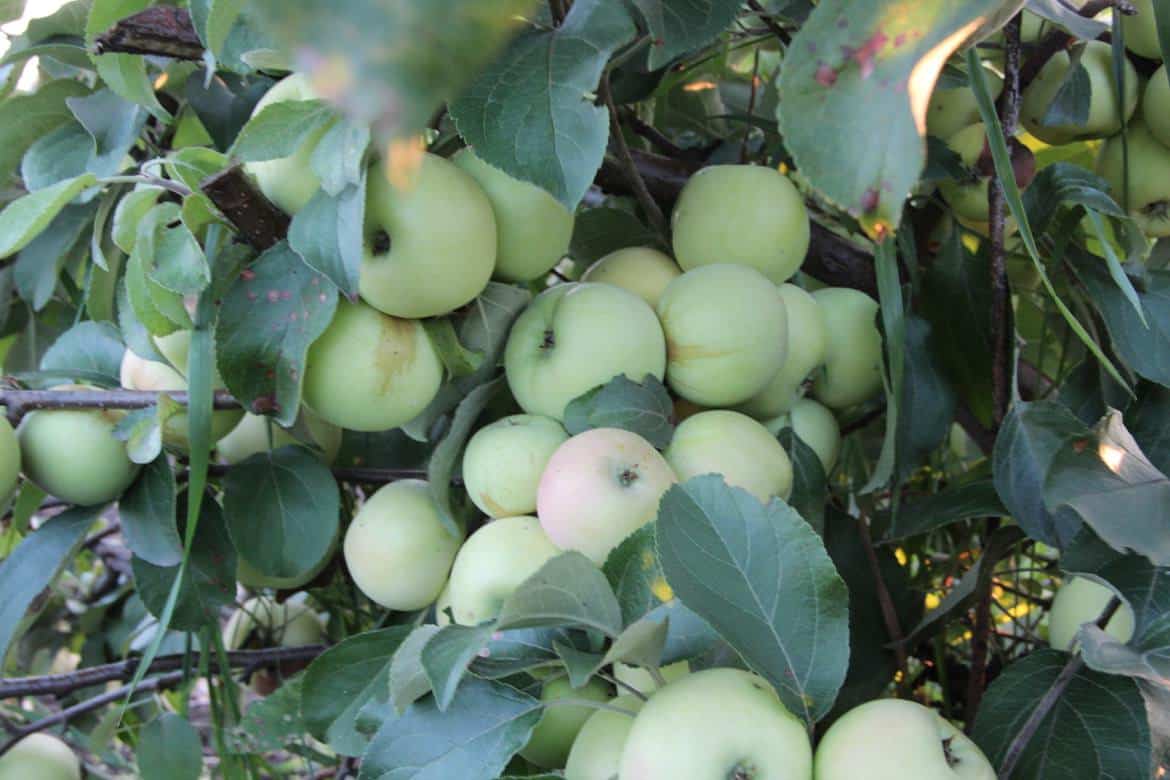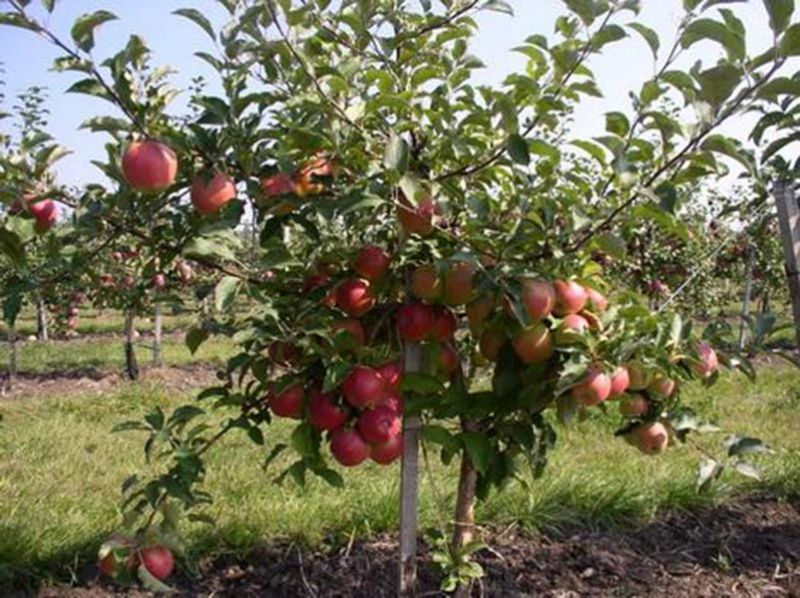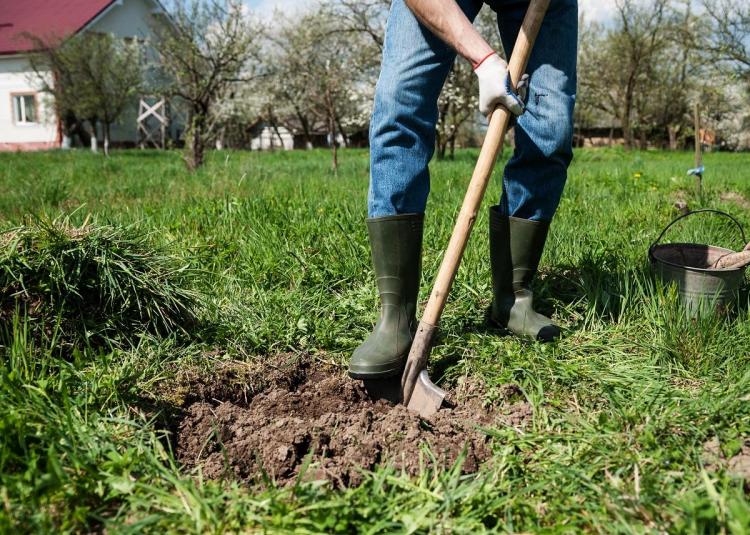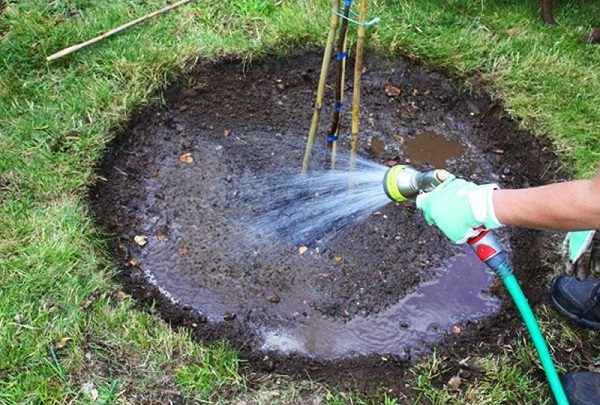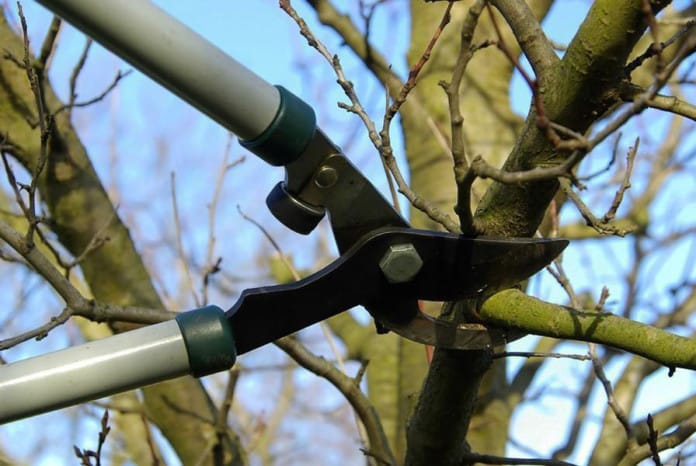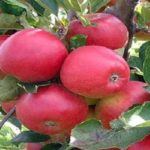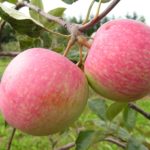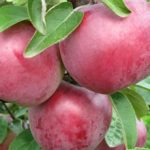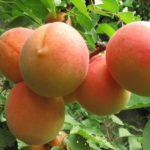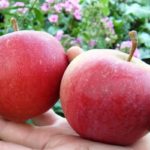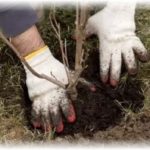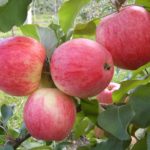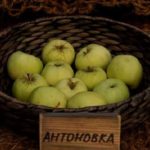Many gardeners, both beginners and experienced, have already appreciated the advantages of the Bratchud apple tree. The fruit tree has many remarkable qualities that set it apart from other varieties. Before growing, it is better to familiarize yourself with the characteristics in detail, this will allow you to avoid shortcomings.
- History of selection
- Features of the winter apple tree variety Bratchud
- Wood appearance
- Barrel length
- Crown width
- Nuances of ripening and fruiting
- Start
- Productivity
- Flowering and ripening times
- Tasting evaluation of apples
- Fruit collection and storage
- Technical data
- Lifespan of a tree
- Disease resistance
- Winter hardiness
- Subspecies and options
- creeping
- Low
- Dwarf
- Superdwarf
- How to grow an apple tree
- Features of planting and care
- Preparing the seedling and hole
- What soil composition is needed
- Planting a tree
- Watering
- Top dressing
- Crown trimming
- Treatment against insects and infections
- Mulching
History of selection
The Bratchud variety was bred by the Chelyabinsk Research Institute with the goal of growing a fruit tree that is not afraid of Siberian frosts. For crossing, Zimneye Uralskoe and Plakuchee Vydubetskoe were used. Until 2002, the apple tree was grown only in Siberia, but thanks to its advantages, it quickly spread throughout the country.
Features of the winter apple tree variety Bratchud
Bratchud has many advantages noted by gardeners. Features of Bratchud include:
- frost resistance;
- taste of fruits;
- productivity;
- constant fruiting.
The Chudny brother variety has a slight drawback - a weak immune system. The tree often suffers from scab and powdery mildew.
Wood appearance
The Bratchud apple tree does not stand out among similar fruit crops in its external features, but it is better to study the description of the tree. Knowledge will allow you to avoid shortcomings in growing and even choosing a place to plant a seedling.
Barrel length
The height of a dwarf rarely exceeds 2.5 m. Even with proper care on nutritious soils, Bratchud does not try to grow in height, preferring to devote all his strength to fruiting.
Crown width
The branches of the plant are located horizontally to the soil surface. The crown is spreading and quite dense. The width often reaches 4 m.
Nuances of ripening and fruiting
To appreciate the benefits of the Bratchud variety, it is recommended to study the characteristics of ripening and fruiting. This will ensure that the choice was made correctly.
Start
The variety begins to bear fruit just 4-5 years after planting. In warm regions on nutritious soils, the first fruits appear in just three years.
Productivity
The Bratchud variety is quite productive. An adult tree produces up to one and a half centners of juicy fruits. The weight of one fruit is up to 180 g.
Flowering and ripening times
The Bratchud apple tree blooms at the end of April or even the beginning of May. In harsh conditions, the first buds often bloom even at the end of spring.
Fruit ripening begins at the end of April and lasts until the end of September. In cool conditions, apples stay on trees until almost mid-autumn.
Tasting evaluation of apples
The fruits of Bratchud are juicy, fleshy, green in color with a bright pink blush. The taste is very sweet, there is a slight sourness.
Fruit collection and storage
Bratchud apples have a strong petiole that prevents ripe fruits from falling off. You have to collect the crop directly from the tree. Store in cool conditions. At this temperature, the fruits will keep well for almost six months.
Technical data
Studying the technical data will allow you to arm yourself with knowledge that will facilitate the process of caring for the Bratchud apple tree. It is recommended to study the immunity, resistance and endurance of the plant.
Lifespan of a tree
One of the disadvantages of the Bratchud apple tree is its short lifespan. Even with maximum care and timely feeding, the tree will stop bearing fruit after 20 years and will have to be replaced with young plants.
Disease resistance
Despite its resistance to cold temperatures, Bratchud has weak immunity. The tree is often affected by scab and rot, and in especially rainy summers, powdery mildew spreads on apple trees.
Winter hardiness
The Bratchud apple tree is a leader in durability and easily tolerates even frosty winters with temperatures up to 40 degrees below zero. The only thing that can disturb the tree is freezing of the roots.
Subspecies and options
The Bratchud apple tree has many subspecies, each of which has its own pros and cons. The variety is widely used in breeding work to develop new varieties.
creeping
The apple tree has a flat, almost horizontal crown. The height of an adult plant is up to 2.5 m. The fruits are not too large - up to 150 g.
Low
The height of an adult apple tree is up to 2 m. Average-sized apples are 130-150 g. Fruiting is early; already in the third year after planting young trees it will be possible to harvest.
Dwarf
One of the differences between the tree is that even a ten-year-old apple tree does not exceed one and a half meters in height. This does not affect the weight of the fruit - the weight of apples ranges from 140 to 150 g.
Superdwarf
Considered a tiny apple tree, a mature tree barely reaches one meter in height. One of the disadvantages is that after ten years the apple tree rapidly reduces its yield.
How to grow an apple tree
Achieving active fruiting and rapid growth of the tree will be achieved with proper care. We should not forget about following the rules for planting seedlings.
Features of planting and care
It is recommended to plant the Bratchud apple tree in sunny areas. You should take care in advance about protection from wind and drafts - plant the tree in a cozy corner.
Carefully study the location of groundwater; if it is too close, there is a risk of destroying the roots of the plant.
Preparing the seedling and hole
Before planting, soak the roots in warm water or a clay mixture (stir 500 g of clay in a bucket of water).
Prepare a small hole - no more than half a meter in diameter. The depth of the pit is also up to half a meter.
What soil composition is needed
Mix the soil mixture in advance - combine river sand, compost, peat. Be sure to add garden soil.Do not add fertilizers, but if the soil composition is too poor, add a little mineral fertilizer to the soil mixture.
Planting a tree
Planting is carried out as usual - place the roots in the hole, straighten them, making sure there are no creases. Fill with soil mixture carefully, checking whether the voids between the shoots are completely filled. Be sure to immediately tie it to the support.
Watering
After planting, irrigate the soil; a bucket of water is enough for the seedling. An adult tree will also need watering, especially in hot summers. Be sure to carry out loosening and removal of weeds in advance.
Top dressing
Bratchud is fed with nitrogen fertilizers in the spring. During the warm season, it is recommended to use organic fertilizers. In the fall, the last application of fertilizers should be made in October - water the soil with complex compounds.
Crown trimming
It is not necessary to prune the crown annually; the variety is not prone to thickening. Only shoots that are too long or branches that are broken or damaged by frost are shortened. The first pruning is carried out the next year after planting. Usually only the trunk is removed, the cut is located at a height of half a meter from the soil surface.
Treatment against insects and infections
Insects rarely invade Bratchud; you can avoid the spread of pests using gentle folk remedies. To prevent diseases, carry out preventive irrigation regularly, starting in spring. Use chemicals in which copper is the active component.
Mulching
Apply a mulch layer immediately after planting the seedlings. Regularly update compost or humus. Before winter frosts, cover the tree trunk circle with a thick layer - this will protect against freezing.
Due to its taste and hardiness, Bratchud is grown not only in harsh conditions, but also in warmer regions of the country. The apple tree will certainly delight you with a harvest of sweet, juicy fruits, which are used in desserts, canned food, and are enjoyed fresh.

